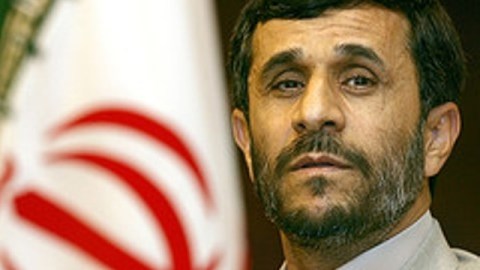The Iranian Spark That Could Start a War

A former British Prime Minister, James Callaghan, once warned that sudden squalls could blow into major storms and often from unexpected places. Not very long afterwards, the Argentinians began to make bellicose noises towards the British ruled Falkland Islands, which they claimed as the Islas Malvinas. This was 1978, and the situation was speedily resolved without a shot being fired, but with the Argentinians being quietly warned that a Royal Navy nuclear submarine was on patrol in the area. Callaghan had never expected trouble to emerge from this neglected and forgotten outpost. His successor, Margaret Thatcher however did not have the foresight to learn from the earlier incident, and announced the withdrawl of HMS Endurance from Falkland waters, and for good measure awarded the islanders with new, not so British, passports. The Argentinians took their cue and the rest of course is history.Today, more thoughtful officials at the United Nations in New York are looking nervously at a small, forgotten outpost in the middle of Iraq as being a possible source of greater conflict. There are just over 1350 Kurdish Iranian refugees living near Irbil in Northern Iraq, where they have been since the fall of the Shah. One upon a time they could count on the shelter of Saddam Hussein and his Sunni backers, but today with the old enemies of Iraq and Iran closer than they have been for decades, the Kawa Camp risks turning into a flash point. The Iraqis say it is time for them to return to Iran, while the refugees says that if they do, they will be tortured. Their cause has been championed by amongst others, US Republicans and by Democrats such as Howard Dean. Their plight becomes even more relevant when seen thought the prism of Iran’s nuclear programme and the response of the West, and in particular by Israel.This week’s report by the IAEA (International Atomic Energy Authority) put that nuclear programme under much sharper analysis, drawing howls of outrage from Tehran. The IAEA report barely made the headlines in Europe, beset as it is with more immediate problems. But crucially it claimed that Iran “has worked to design nuclear bombs”. This does not mean that Iran actually has the nuclear bomb, but that it is likely striving to achieve having one. The Iranians have of course indignantly dismissed any claim that this is the path that they are on, and have continued to allow inspectors in to the country under the terms of the Non Proliferation Treaty, of which it is a signatory.Israel, which is a nuclear power, with nuclear weapons, but which is not a member of the NPT and does not allow IAEA inspections of its nuclear facilities, has reacted strongly. Israeli hawks are though to favour a surgical strike against Iran’s nuclear facilities, while the Iranians have threatened to respond to any Israeli attack, by wiping Israel off the map. Two weeks ago it was revealed in The Guardian newspaper that the British Ministry of Defence had been engaged in contingency planning to join with, if necessary, any American led response to come to the aid of Israel.It would be tempting to write off all of this as typical sabre rattling. The problem is that this time the IAEA have gone further than ever before, while Israel and Iran sound more bellicose than ever before. Both the US and Israel have refused to rule out any option to prevent Iran from acquiring a nuclear arsenal. Marry this to a deeply alarming economic situation in the West, and the potential for all of this to get out of hand is very great. Especially when you have an issue as vexatious as the Kawa refugee camp moving to the centre of the web, much as the Archduke Ferdinand unwittingly did in Sarajevo in the early years of the last century.Wiser counsel at the United Nations is urging caution, and in the shape of Secretary General Ban ki moon are urging a “diplomatic solution to the nuclear stand-off”. While calling for Iran to observe Security Council resolutions and saying that the onus is now on Iran to prove the peaceful nature of its programme, Ban ki moon and the UN are clear; that negotiated, rather than a military solution is the only way to resolve the issue. Wise counsel such as this was largely ignored in the run up to the war in Iraq, and such were the consequences that few thought such blundering would ever occur again. There is of course a tendency for lessons to be heeded by the international community as it suits differing agendas. But this time, the World and the potential protagonists have been warned, and this time by a UN Secretary General with a very real moral authority. They should listen.





